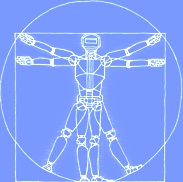
Calculus Ex Geometrica: Structure-Preserving Foundations for Computations
Mathieu Desbrun, California Institute of TechnologySince their inception, computer graphics and animation have thrived by borrowing from mathematical and physical models and by making inroads into computational science---be it in radiosity, surface processing, or fluid simulation. However, it is routinely observed that the passage from differential modeling to discrete implementation often lacks the necessary safeguards to guarantee the preservation of important continuous properties in the resulting discrete algorithms, leading to classical flaws such as numerical viscosity and energy blowups. In this talk, we will argue for a geometric approach to computations. We will show that a discrete geometry-driven calculus can indeed leverage the mature geometric understanding of differential calculus on manifolds (going back to Cartan) on which most physical theories are based. The resulting variational techniques not only result in numerical tools that intrinsically respect key defining properties like symmetries and invariants, but also clarify abstract concepts of algebraic topology. We will demonstrate these properties on a number of graphics and simulation applications. Of particular interests to the robotics community, we will discuss the notion of variational integrators, where optimality of the space-time trajectory (i.e., Hamilton's principle) yields a set of conditions on the path at each time step, from which a time integrator falls out naturally.
Biography:
Mathieu Desbrun is an Associate Professor at the California Institute of Technology (Caltech). After receiving his Ph.D. from the National Polytechnic Institute of Grenoble (INPG), he spent a year as a post-doctoral researcher at Caltech before joining the faculty of the CS department at the University of Southern California from 2000 to 2004. He now directs the Applied Geometry lab at Caltech, focusing on discrete differential modeling, i.e., the development of differential, yet readily-discretizable foundations of computations with a wide spectrum of applications, from discrete geometry processing to solid and fluid mechanics.
See also http://www.multires.caltech.edu/~mathieu
